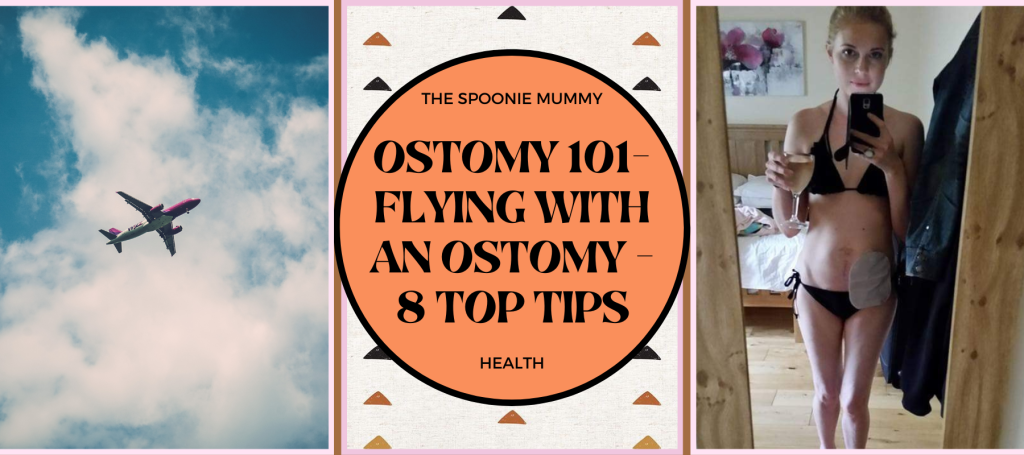If you watch The IBD & Ostomy Support Show you will know our August theme has been exercising with IBD or an ostomy. This can be difficult for many reasons – fatigue, risk of hernia, malabsorption, deficiencies and many more. There are many amazing people across the IBD community who are actively taking part and even competing in sports.
Ali Jawad is a double leg amputee and he also suffers from Crohns Disease. He is a British Paralympian and competes in the -59kg class in weightlifting. I contacted him through his Facebook page and asked if it would possible to ask him some questions about his Crohns Disease and if and how it affects his career. He very politely agreed and it was lovely to get the chance to talk to someone who has overcome so many hurdles in life to be so successful in a sport he loves.
1) What is your diagnosis? What age were you diagnosed? What were your initial symptoms? Are you on any medication or have you had any surgery for your Crohns?
I have Crohns disease. I was 19 years old at the time my symptoms started. Unfortunately, at my first Paralympic Games in 2008, I got sick the night before I competed and no one knew what was wrong with me. I had diarrhoea, vomiting, right side pain and a lot of sweating. It took 9 long months to diagnose me. I had surgery in 2010. I’ve been on prednisolone, pentasa, azathioprine and am currently on humira injections.
2) You were born without your legs from the mid thigh down. When you were younger were physios etc involved in your care? Were you given exercises, hydrotherapy etc?
I used to where prosthetic limbs, but I gave them up when I was 11. I used to have to attend physio to learn with different legs. I hated it. So I gave them up as I thought I’m far more independent without them. I love having no legs! I’ve never wanted legs ever.
3) What age were you when you started weightlifting and how did you get into it?
I was 16 years old when my friend forced me to go to the gym across the road. I got spotted by the owner. He said I had massive potential if I chose to pursue powerlifting, not knowing at the time it would be the start of a rollercoaster journey.
4) What is a typical day/week like for you with your training?
At my busiest I’ll be in the gym for 12-15 hours a week. But that’s without weekly physio, nutrition meetings, coach meetings and monitoring. Remember being an elite athlete is my whole life so my nutrition and the way I live my lifestyle is optimal for training.
5) How does a Crohns flare impact on this schedule?
My Crohns only impacts me when it flares. Obviously as my diet has to be optimal, I lead a very strict life to try and reduce the symptoms as much as possible. But at the end of the day, it’s about fighting through whatever Crohns throws at you.
6) How do you amend your diet to coincide with training alongside having Crohns?
My diet is all about anti inflammatory foods to reduce inflammation in the body. Technically, Crohns disease is inflammation, so a diet that tackles this has to be implemented. Also as powerlifting is a body weight sport, I have to make sure I’m in body weight for competitions, so all my food is weighed. It takes a lot of meal prepping! However, this strict approach had to be done for me to be able to compete.
7) Do you take any supplements, vitamins etc to help with your Crohns?
As with any auto immune disease, absorbing micro nutrients is hard. So I take Vitamin D mainly. I try to take the natural approach through food as much as possible. You can’t rely on supplements, but I understand that most people can’t keep such a strict diet schedule like I can.
8) Do you feel like Crohns disease has held you back from achieving any of your goals? How do you motivate yourself to get back on top again if/when this happens?
When I first got diagnosed, I thought all my dreams were over. I was told by doctors no Crohns disease sufferer (not Steve Redgrave, as he has colitis) has ever medalled at any Summer Olympic or Paralympic Games. They told me to retire, as to compete with such a unpredictable condition against world class athletes would be a massive disadvantage. Luckily, I knew that if I put everything I can in place to reduce my symptoms, be mentally tough with whatever comes my way, I may have a shot. It also excited me that no one has ever won a medal, I thought how good would it feel if I was the first? Ironically, I wasn’t the first Crohns sufferer to medal at an Olympics…that honour goes to Kathleen Baker from the USA in swimming. She got her silver medal two weeks before me. The 2016 Olympic and Paralympic Games in Brazil were certainly historic for Crohns sufferers across the world with two Crohns athletes winning Olympic and Paralympic medals! However, no Crohns sufferer has won gold yet in an individual event at the Olympics/Paralympics so that is something to aim for.
9) How does it feel winning a gold medal? (My 8 year old son watched the Rio Paralympics with me and thought you were amazing and should have got gold, especially when I told him you had Crohns too!)
I won silver in Rio…however after everything I’ve been through it felt like a gold. I’ve won World and European golds in the past, but this meant more to me as it has always been my dream to get a Paralympic medal since I was 6. Sometimes I look at the medal, and I’m still in shock that I managed it after the struggles I’ve been through. It was a proud moment for me.
10) What advice would you give anyone with IBD looking to get into exercise?
My best advice is that everyone with IBD knows not to take good health for granted. Flare up, symptoms, and daily life with such a condition is hard. So why not live optimally to reduce it? Optimal dieting and exercise is so important, I can’t stress how much it helps, even though the discipline and commitment to it is big. But I promise it’s worth the good health. No matter what aims you have in life…don’t let Crohns or Colitis limit your potential. You can achieve anything you want, don’t use the condition as a excuse.
Unfortunately, Ali is currently in the middle of a huge flare so isn’t competing. He is looking to treat his flare and make his comeback next year and I hope everyone will be cheering him on when he does. To stick to an athlete’s training and eating regime is tough for anyone, never mind when you suffer from IBD as well. Thankyou so much to Ali for taking the time to talk to me and share his story. I hope it helps inspire people to realise that so many goals are not out of reach, just because you suffer from IBD.
















Leave a comment